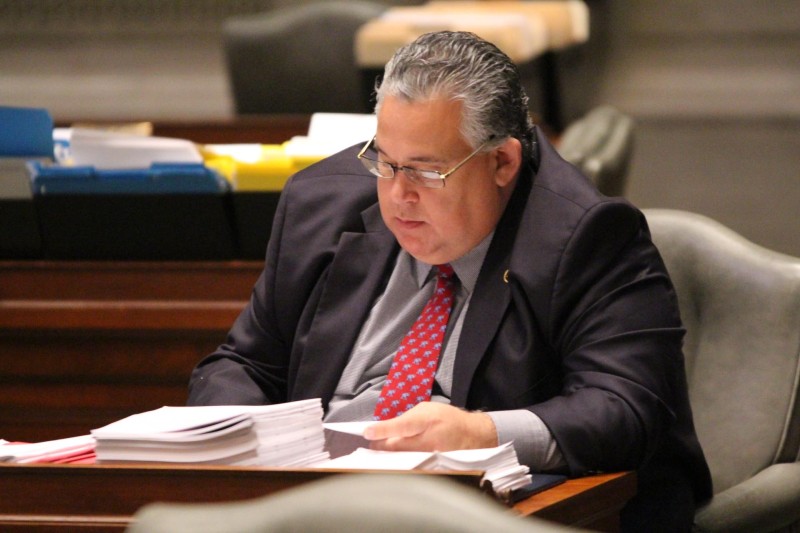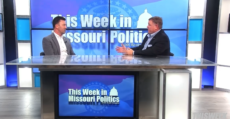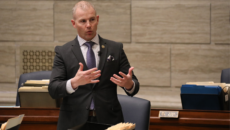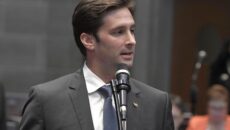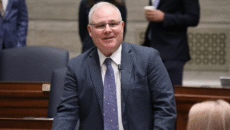Jefferson County senator looks for changes to insurance provisions in major ridesharing law
JEFFERSON CITY, Mo. – In the spirit of March Madness, one piece of legislation thought to be a slam-dunk instead hit the rim and ricocheted back to the free throw line earlier in March.
A filibuster on the transportation networking company (TNC) legislation, better known as the Uber bill, stalled in the Senate March 9 when Sen. Paul Wieland voiced his objections to certain parts of the bill.
Sen. Bob Onder, the Senate handler of the legislation, said that at the beginning of the legislative session, he and House sponsor Rep. Kirk Mathews, as well as Speaker Todd Richardson, thought all stakeholders had come to a strong agreement. Taxicab companies, which had long opposed the measure, had managed to hold their nose and not demand an ax be taken to it after receiving a few concessions in the bill.
“We worked out a number of concerns legislators from Kansas City and St. Louis had because they have this taxi regulatory system and the question is how TNCs would fit into that regulatory scheme,” Onder said. “We really thought we had a good compromise.”
It passed early in session as one of the first bills through the House alongside right-to-work and a ban on gifts from lobbyists. Richardson strongly supported the measure and Onder, a Republican leader in the Senate, had also named it one of his top priorities.
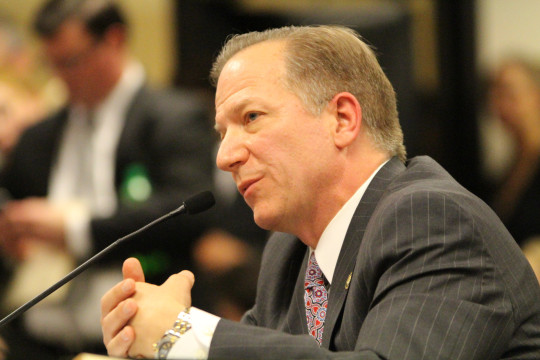
However, Weiland’s opposition to the bill has raised questions whether or not the bill will breeze past the finish line as it seemed ordained to do. Sens. Rob Schaaf and Maria Chappelle-Nadal joined Wieland’s filibuster as he attempted to attach some amendments to the bill. Onder laid it over, and it was not heard on the floor in the week before Spring Break.
Wieland, R-Imperial, opposes the legislation because he fears it will lead to fewer people, namely those who sign up to become drivers for TNCs like Uber, Lyft or Sidecar, to forgo paying for insurance. If a person signs up to become a driver, he says, and a TNC promises to cover his or her insurance when they’re driving for the company, drivers could forget their insurance only applies when they are on the clock when it comes time to renew their personal insurance.
Wieland offered an amendment that would prevent drivers lacking insurance from working for Uber.
“If a policy were to cancel, Uber would be notified the policy had lapsed and at that point in time Uber would have to take these drivers off of their platform,” Wieland said. “Otherwise, if they’re not responsible enough to carry their own insurance, they shouldn’t be on the platform.”
Closer inspection of the bill by Wieland, who owns his own insurance company, led to more questions and more concerns about the legislation to the extent he now has almost 10 amendments on the bill. He has yet to speak with Onder, but he has spoken to TNC representatives who now seem receptive to working with him on the insurance problem. Their change of heart only came after he held up the bill, he says, noting he had concerns about the insurance portions of the bill for the last three years.
“Later never came, so I look at it as now is the last time a TNC bill is going to go through so if I don’t do it now, we may never get it done,” Wieland said. “I don’t expect to get everything done, but I don’t expect to be treated like I don’t matter.”
However, some sources have said the senators filibustering the bill are opposing it for alternative reasons, unrelated to the legislation. Onder called the bill, the “victim of a filibuster, as best I can tell, about issues unrelated to the TNC bill.” Wieland said the more TNC companies pushed back against his insurance amendment, the more he decided to look into companies like Uber and Lyft and determine if they were companies who embraced Missouri values. One of his amendments protects the Second Amendment rights of drivers and another ensures those drivers have religious liberty protections. He has about seven or eight amendments total.
That said, Onder’s still cautiously optimistic it will make it to the governor’s desk by the end of session.
“If it comes to a vote, I have no doubt it will pass overwhelmingly,” Onder said.
Wieland also says he’s not looking to kill the bill, just to improve it with his insurance changes.

